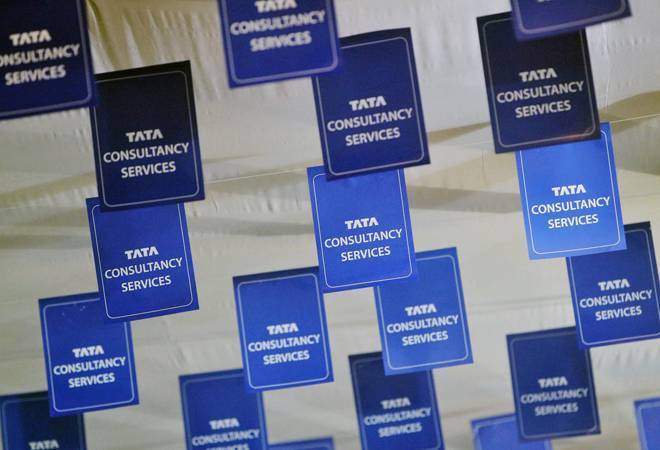Post-COVID, 75% of 4.5 lakh TCS employees to permanently work from home by ’25; from 20%
Post-coronavirus: New model called 25/25 will require far less office space. Decision came after the firm briskly moved 90% of its workforce to an operating model called Secure Borderless Work Spaces
Not all is negative about the lockdown aimed at curbing the spread of coronavirus, certainly not for India’s largest IT service firm Tata Consultancy Services (TCS). The crisis has provided an opportunity to India’s largest IT firm to discard its 20-year-old operating model and leapfrog into a new mode of work.
Running up to 2025, TCS will ask a vast majority of 75% of its 4.48 lakh employees globally (including 3.5 lakh in India) to work from home, up from the industry average of 20% today. The new model called 25/25 will require far less office space than occupied today. “We don’t believe that we need more than 25% of our workforce at our facilities in order to be 100% productive,” says TCS’s chief operating officer NG Subramaniam.
The decision came after TCS briskly moved 90% of its 4,48,000 employees post-lockdown to an operating model it calls Secure Borderless Work Spaces (SBWS). In a letter to employees TCS CEO and MD Rajesh Gopinathan wrote SBWS had seen 35,000 meetings, 406000 calls, and 340 lakh messages across TCS on the digital collaboration platform.TCS has invested in creating SBWS over the past few years. “We have come out stronger and our model is more proven than ever before,” TCS’s CEO and MD Rajesh Gopinathan says.
Also read: TCS expects first two quarters to mirror 2008-09 recession, Q3 to usher in recovery
Subramaniam adds that each employee should spend only 25% of working time in office. This will also imply that of all the team members, only 75% of a project team may be in a single location and the rest will be dispersed across geographies, he says.
But does 55% fewer employees mean 55% less need for office space? For firms the cost benefit will be huge but may not be directly proportional, says Ashutosh Limaye, Senior Director and Head, Strategic Advisory & Valuations, Anarock Consulting. The percentage reduction in workforce will not be equally proportionate to the decrease in office space. So, 25% less employees in office may reduce the need for office space by 15%. The reason is shared spaces in terms of common areas or facilities might not reduce as much.
TCS being the bellwether among India’s IT services firms, other IT firms will have no choice but to follow. This would cause major changes in the entire operating model of IT firms. Experts say before the lockdown no more than 15-20% of employees ever worked from home among the Indian services firms. While IT services companies in India have the best HR practices in line with clients of the developed work, flexibility isn’t one of them. They never really did offer work from home options to employees due to security requirement of customer projects (especially in sectors like defense, public sector, BFSI), unless of course anyone has a personal situation to be taken care of. IT product firms and MNCs such as IBM, Cisco, Microsoft have more work flexibility options for employees.
Also read: Tech giant TCS to hire 39,000 freshers in FY21
Ravi Gajendran, a business professor at Florida International University who focuses on telecommuting says that this move makes a lot of sense in India especially in metros with its long commutes and traffic. He says after TCS, incumbents like Infosys and Wipro are likely to follow, else they will lose competitive advantage in human capital.
“From a highly centralised model consisting of work spaces set in large delivery campuses capable of accommodating thousands of employees, we had to switch to an extreme form of distributed delivery in a matter of days,” says Gopinathan.
TCS’s CEO Gopinathan says it is not about moving the person out from the office and giving access to the laptop and desktop in the house to connect. It is much more than that. “It is about taking the entire element of the operating model and being able to deploy that into this kind of an extended environment we call SBWS.” He says the firm has rejigged its cyber security posture, project management practices and systems to ensure proper work allocation, work monitoring and reporting to ensure quality and security of the projects was not compromised.
On productivity gains from this operating model, the firm’s COO Subramaniam says, “We believe that we will be in a position to achieve about 25% improvement in velocity throughput productivity.” Currently, he said, all customers’ services projects are on track and none got hampered due to the sudden change in operating model.
But, will TCS go back to the current way of working post lockdown?
Gopinathan is clear that will not be the case. “We’re not going to go back to where we were,” he says.
Also read: BT Buzz: Debt fund closure by Franklin Templeton; should you be worried?
He says it is not just about productivity and work life balance for employees but decentralising work also has several organisational benefits. He said, “It helps organisations become more resilient, because the fully distributed nature of this model is inherently less risky and better suited for business continuity and agility.”
Ashutosh Limaye, Senior Director and Head, Strategic Advisory & Valuations, Anarock Consulting says that while working from home is great in terms of its work life benefits benefits, Indian workforce might not have the tools and the space to make it productive in the long run. He explains: apart from the top leadership, houses of entry level colleagues or middle managers might not have separate study rooms. They would have to carve out spaces from the existing rooms. Such adjustments may or may not work in the long run. There might be network issues too. While IT infrastructure has improved but there is a need to augment it.
Also read: Coronavirus crisis: Finance commission to revise real GDP growth for FY20 after lockdown


